Let's Get Social
-
Follow Our Travels, Learn More About Our Research & Get Notified When We Post Something New - SIGN UP HERE! Learn More
Post Categories
-
Recent Posts
- Centenarians Walk Their Way Through A Longer Healthy Life
- Okinawan Sweet Potato Boosts Your Anti-Aging Defenses
- Superfood Ingredients
- The Long Lived People Eat Nutrient Dense Foods
- Okinawan Secrets to Longevity Include Practicing Yuimaaru
- “Hari Hachi Bu” Can Help You Live Longer
- Animals Know How to Live A Longer Healthy Life
Longevity Hotspots
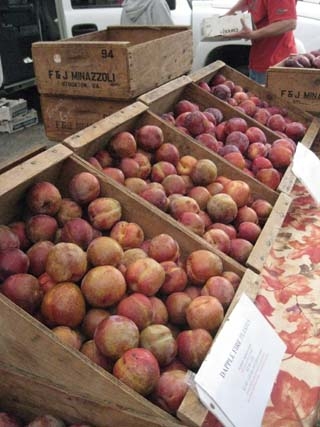
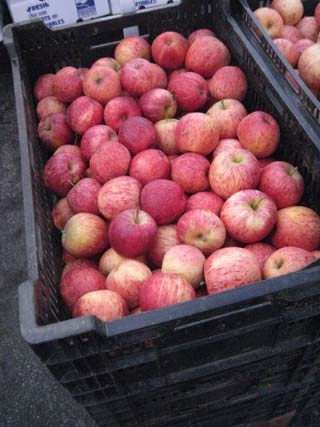
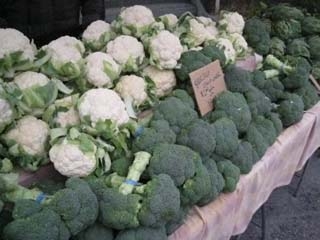
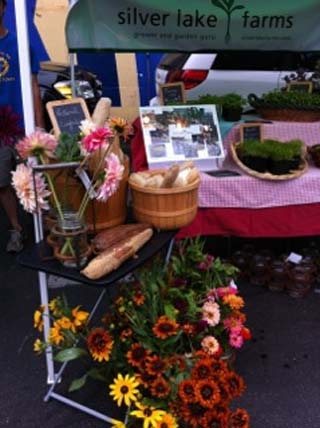
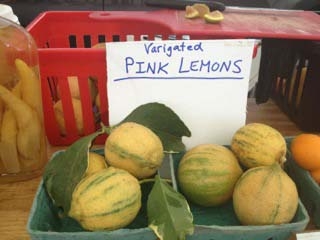
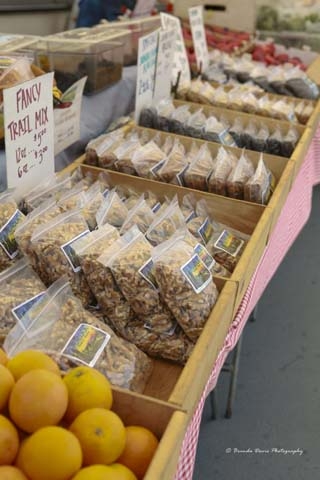


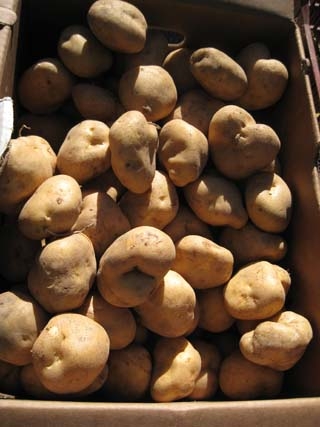
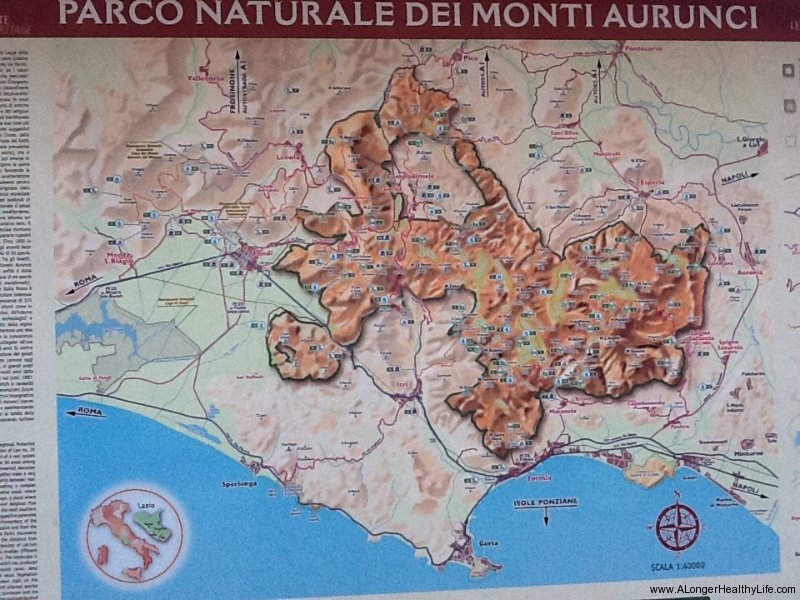

Post Archives
Tag Archives: Okinawan longevity
Okinawan Sweet Potato Boosts Your Anti-Aging Defenses
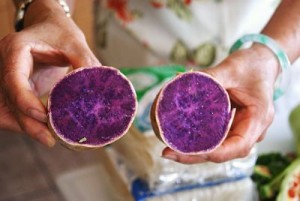 In the village of Ogimi, famous for its high ratio of Centenarians, as much as three times higher than most Western Nations, Michael and I found the richly colored deep purple Okinawan sweet potato to be a staple of their daily diet. This vibrant potato, rich in flavor and packed with nutritional benefits has long been thought to be one of the reasons the Okinawans are among the world’s longest-living people and suffer far less from common diseases associated with the aging process, such as heart disease, cancer, diabetes and Alzheimer’s.
In the village of Ogimi, famous for its high ratio of Centenarians, as much as three times higher than most Western Nations, Michael and I found the richly colored deep purple Okinawan sweet potato to be a staple of their daily diet. This vibrant potato, rich in flavor and packed with nutritional benefits has long been thought to be one of the reasons the Okinawans are among the world’s longest-living people and suffer far less from common diseases associated with the aging process, such as heart disease, cancer, diabetes and Alzheimer’s.
The Okinawan sweet potato, not related to the potato, is actually part of the morning-glory family, a vine coveted for its beautiful deep purple flower. Native to the Americas, the “Okinawan” sweet potato was brought to Japan sometime between 1492 and 1605 and after World War II, became a staple of the native survivors left on the island of Okinawa because it was such a hardy crop.
Not only high in vitamin A, vitamin C and manganese, they are also a good source of copper, dietary fiber, vitamin B6, potassium and iron and have been shown to improve blood sugar regulation and insulin production. More recent studies have discovered significant antibacterial and anti fungal properties, yet another indicator of why the Okinawan Centenarians maintain remarkably vibrant health.
The primary nutritional benefit, and the one for which Okinawan sweet potatoes are especially prized, is their high antioxidant levels. Antioxidants help to guard against cancer and cardiovascular disease. Anthocyanin, the antioxidant responsible for the brilliant purple color of the flesh, is the same anthocyanin pigment that gives blueberries, red grapes and red cabbage their color. The Okinawan sweet potato actually has 150 percent more antioxidants than blueberries.
These little purple powerhouses are also a rich source of DHEA (dehydroepiandrosterone.) This is a precursor hormone – a substance that remains latent until it converts into a hormone that the body needs. DHEA can become estrogen, progesterone, or testosterone, all essential for your body’s anti-aging defenses to work. As we age, the body’s level of precursor hormones like DHEA drop dramatically in Western cultures, but drop at a much slower rate among the long-lived Okinawans, a phenomenon attributed by many to their diet rich with Okinawan sweet potatoes.
Enjoy these potatoes baked, roasted, boiled, steamed, sautéed, scalloped (with almond milk), or mashed with coconut water and sea salt. They are also great mashed with a little applesauce, cinnamon, nutmeg and grated orange zest. They make a great substitute in a sweet potato pie, or any other recipes you would normally use yams or bright orange sweet potatoes. So begin today adding the Okinawan Sweet Potato to your diet … and remember, “By birthright, we are all entitled to live A Longer Healthy Life!”
Diane Haworth and Michael Varbaek, Longevity Researchers www.ALongerHealthyLife.com
Okinawan Secrets to Longevity Include Practicing Yuimaaru
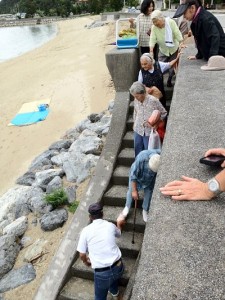 Michael and I are in Okinawa Japan this month studying the lifestyle and habits of the long-lived people here. Today we are in the village of Ogimi where there are more people living to be over a hundred than anywhere else in the world. The warm and smiling faces of the people here invite us to learn their ways and are open to sharing what has been passed down for many generations, including the practice of Yuimaaru which translates roughly to “warm-hearted and friendly cooperative effort.”
Michael and I are in Okinawa Japan this month studying the lifestyle and habits of the long-lived people here. Today we are in the village of Ogimi where there are more people living to be over a hundred than anywhere else in the world. The warm and smiling faces of the people here invite us to learn their ways and are open to sharing what has been passed down for many generations, including the practice of Yuimaaru which translates roughly to “warm-hearted and friendly cooperative effort.”
You may see Yuimaaru when a neighbor needs help with repairing his roof, harvesting his crop, or celebrating a special occasion. Many people from the village will come together to help in the effort, “many hands make light work,” but perhaps key to their longevity is it provides a chance for social interaction spending time with others and for friendships to blossom.
Yuimaaru is also apparent when large groups of the long-lived women in Ogimi get together to simply cheer on school children from the village in sporting activities. They are often not related to any of the children in the event, but will come out to support and mentor and spend time with the children of the village.
It is the very act of being a part of something greater than yourself, a mutual aid and reciprocity that gives comfort, joy and peace of mind as we age, especially to those who are living alone. By practicing Yuimaaru, the long-lived Okinawan never feel isolated or alone. This in turn gives them yet another reason to get up every day and celebrate their journey in life.
We can practice Yuimaaru in our daily lives by volunteering our time, helping others in need in a group or club effort, joining a non-profit organization in our own community or in our church. Begin today implementing the habit of Yuimaaru in your daily life, and you will not only add years to your life, you will live A Longer Healthy Life.
Diane Haworth and Michael Varbaek, Longevity Researchers www.ALongerHealthyLife.com
Posted in Longevity Lifestyle Habits
Tagged health and longevity, live longer, long healthy life, longer healthy life, longevity, longevity habits, longevity lifestyle, Okinawan longevity, Yuimaaru
Comments Off on Okinawan Secrets to Longevity Include Practicing Yuimaaru
“Hari Hachi Bu” Can Help You Live Longer
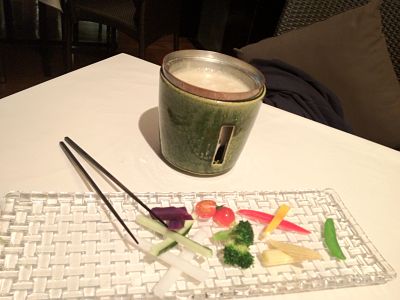 By eating until you are 80% full you just may outlive your peers, and as an added bonus, you will likely feel more energetic, and delay the signs of aging like wrinkles, hair loss and mental decline. You may also significantly lower your risk of heart disease, diabetes, high blood pressure, arthritis, and cancer.
By eating until you are 80% full you just may outlive your peers, and as an added bonus, you will likely feel more energetic, and delay the signs of aging like wrinkles, hair loss and mental decline. You may also significantly lower your risk of heart disease, diabetes, high blood pressure, arthritis, and cancer.
The first studies done at Cornell University in the 1930’s showed a link between eating fewer calories and longevity and today more than 2000 studies have been conducted that consistently show the same. As a rule, a 30 percent reduction in caloric intake corresponded to at least a 30 percent increase in life span in these animal studies. In Okinawa, Japan, residents of the island boast over three times the number of centenarians as their counterparts on the Japanese mainland. This population of long-lived robust Japanese support the theory that restricting caloric intake will also slow the aging process in humans.
The Okinawans consume about 30 percent fewer calories than other Japanese and they not only live longer, they have significantly lower rates of chronic disease such as cancer, heart disease, diabetes, high blood pressure, arthritis, and in addition lower rates of cognitive decline compared with other Japanese. So what can you do? Do as the Okinawans do in the cultural calorie counting habit of Hari Hachi Bu, the practice of stopping eating when you are 80 percent full. This strategy works as a good way to lose extra weight and maintain a healthy base weight as it takes the stomachs stretch receptors about 20 minutes to tell the body how full it really is, and about 20 minutes after eating you will feel full.
Eat a whole food diet that is plant-based. Chose to eat more nutritionally dense calories in the form of fresh organic fruit, vegetables, dark leafy greens, sprouted nuts, seeds, grains and fermented foods. The rewards of making this simple change are immense, including renewed feeling of vitality, the slowing of the aging process, and the postponement or prevention of chronic disease.
Posted in Eating for Longevity
Tagged foods for a longer healthy life, Hari Hachi Bu, health and longevity, healthy long life, life longevity, live longer, long healthy life, longer healthy life, longevity, Okinawan longevity
Comments Off on “Hari Hachi Bu” Can Help You Live Longer

